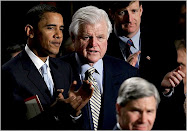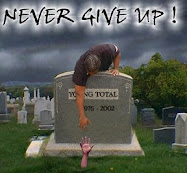Seven Candidates for Corporate Rip-Off of the Year
There are so many acts of corporate treachery that take money from the American people. We need to work together to stem corporate power.
Published: November 24, 2014 | Authors: Paul Buchheit | NationofChange | Op-Ed
There are so many to choose from. Every one of these selections is an act of corporate treachery that takes billions of dollars from the American people.
1. Selling Medication For Up To 100 Times More Than It’s Worth
Pharmaceutical companies reap billions of dollars in subsidies for research and development, but they’ve successfullylobbied Congress to keep Medicare from bargaining for lower drug prices. An extreme example is Gilead Sciences, the manufacturer of the drug Sovaldi, which charges about $10 a pill to its customers in Egypt, then comes home to charge $1,000 a pill to its American customers. Other outrageous examples are noted by Ralph Nader.
As a further insult, Americans are cheated when corporations pay off generic drug manufacturers to delay entry of their products into the market, thereby forcing consumers to pay the highest prices for medicine.
2. Paying Their Employees With Our Tax Money
Walmart made $19 billion in U.S. profits last year, and the four Walton siblings together made about $29 billion from their personal investments. That’s about $33,000 per U.S. employee in profits and family stock gains. Yet they pay their 1.4 million American employees so little that the average Walmart worker depends on about $4,000 per year in taxpayer assistance, for food stamps and other safety net programs.
3. Giving Money to Executives Rather Than Investing in the Future
Corporations are spending trillions of dollars on stock buybacks, which use potential research and development money topump up the prices of executive stock options. Apple alone is spending $90 billion to repurchase its own stock through 2015. Walmart doesn’t provide a living wage for its workers, but its company management spent $7.6 billion, or about $5,000 per U.S. employee, on stock buybacks, in order to further boost the value of their stock holdings.
The buyback surge is dramatic. In 1981, major corporations were spending less than 3 percent of their combined net income on buybacks, but by 2008-9 they were spending 75 percent of their profits on this greed-driven process.
4. Making Money on Dirty Air and Water
Charles Koch once said, “I want my legacy to be…a better way of life for…all Americans.”
Koch Industries dumps more pollutants into rivers and streams than General Electric and International Paper combined. One of Koch’s products is petcoke, which Rolling Stone notes is “denser, dirtier and cheaper than coal.” Too toxic to burn in U.S. coal plants, it’s sold instead to countries with weaker environmental regulations, like Mexico and China. But storage facilities are needed. So the besieged city of Detroit became the dumping ground for a three-story pile ofpetroleum coke covering an entire city block near the Detroit River. The mound of toxic matter spewed thick black “fugitive dust” over the homes of nearby residents. The ugliness was later repeated in Chicago.
5. Making the Highest Profit Margin in the Corporate World — And Demanding a Tax Cut
The trading volume on the Chicago Mercantile Exchange (CME) reached $1 quadrillion in notional value last year. That’s a thousand trillion dollars, about ten times greater than the world economy.
With the collection of transfer fees, contract fees, brokerage fees, Globex fees, clearing fees, and surcharges, the company achieved a profit margin (54%) higher than any of the top 100 companies in the nation from 2008 to 2010, and in the past three years it’s risen to nearly 60%.
Despite being the most profitable big firm, CME complained that its taxes were too high, and they demanded and received an $85 million tax break from the State of Illinois.
6. Skipping Out on the Country that Made Their Business Possible
Walgreens (which later backed down), Burger King, and Medtronic are the biggest names in the so-called inversions that allow companies to desert the country that made them successful. They don’t want to pay for decades of publicly funded research in technology and medicine; a legal system that protects patents and intellectual property; infrastructure, including roads and seaports and airports to ship their products; unprecedented amounts of local and national security, and a nationwide energy grid to power factories.
7. Group Ripoff: $74 Billion in Profits…and a Tax Refund
It seems incomprehensible that Boeing, Ford, Chevron, Citigroup, Verizon, JP Morgan, and General Motors, with a combined income last year of $74 billion, would pay no taxes, and in fact receive a combined refund of nearly $2 billion. The data comes from a new study called Fleecing Uncle Sam, which goes on to note that the unpaid taxes of almost $26 billion could pay for Pre-K education for every 4-year old in America.
Is there an answer to all this? Only if we victims work together toward the singular goal of stemming corporate power, especially in the financial industry. To do this, as Les Leopold says, “we will need something like an Occupy 2.0.”
Otherwise the ripoffs will continue.

























No comments:
Post a Comment